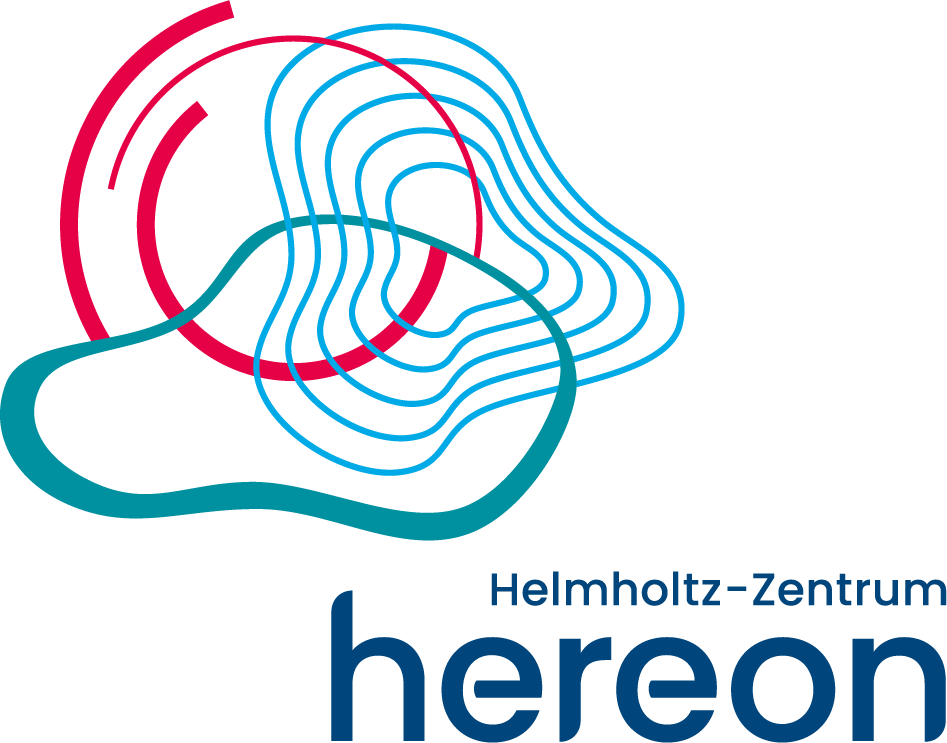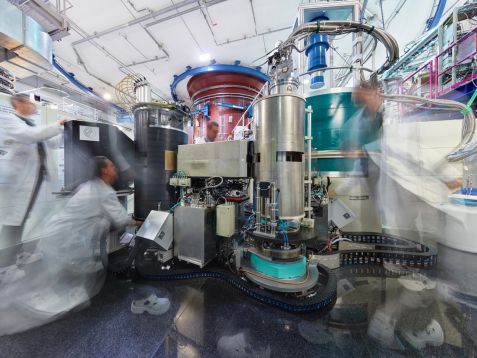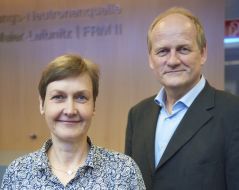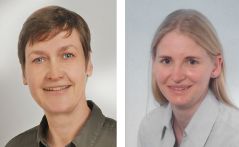MLZ is a cooperation between:
 > Technische Universität München
> Technische Universität München > Helmholtz-Zentrum Hereon
> Helmholtz-Zentrum Hereon
 > Forschungszentrum Jülich
> Forschungszentrum Jülich
MLZ is a member of:
 > LENS
> LENS > ERF-AISBL
> ERF-AISBL
MLZ on social media:

MLZ (eng)
Lichtenbergstr.1
85748 Garching
09.02.2021
Thomas Keller represents German neutron researchers

Dr. Thomas Keller at the TRISP instrument of the Max Planck Institute for Solid State Research at MLZ. Art image: Bernhard Ludewig
MLZ instrument scientist Dr. Thomas Keller received the most votes in the election for the 12th Committee Research with Neutrons (KFN). In December 2020, the outgoing chairmen Dr. Astrid Schneidewind and Prof. Dr. Markus Braden passed the baton to the new chairs Prof. Dr. Frank Schreiber (KFN chair) and Prof. Dr. Susan Schorr (vice chair).
Among the seven members, Dr. Thomas Keller will represent the solid state spectroscopy and instrumentation during the 2020-2023 election period. At the MLZ he is responsible for the three-axis spectrometer TRISP of the Max Planck Institute for Solid State Research in Stuttgart and thus always in exchange with neutron users. This also leads to the leading questions Keller has set for his involvement in the KFN: What instrumental developments are needed? How can we inspire young scientists to work with neutrons?
His questions obviously found a lot of resonance: With 187 votes (13.4 %), Keller was able to convince most voters. In the future, he will be responsible for the infrastructure and instrumentation. This includes long-term planning regarding the equipment and scientific use of national and international neutron sources. “The big topic for all of us is digitalization, for example in the field of artificial intelligence. We as a neutron community also want to participate in this – but the path is still unclear. In addition, all experimental data should be publicly accessible and findable in the future. To this end, uniform data formats must be developed,” says Dr. Thomas Keller. Keller shares his task with Prof. Dr. Markus Braden from the University of Cologne, who is involved in the commissioning of the KOMPASS instrument at the MLZ as project manager.
A total of 1581 scientists were called to vote for the KFN and had 3 votes each. 524 of them (33.14 %) cast their vote. Besides Thomas Keller, four more out of the ten candidates received more than 10 % of the votes. According to the statutes, “scientists in the Federal Republic of Germany as well as German scientists abroad who work with neutrons and hold a professional degree” are eligible to vote.
- Election results of the 12th KFN
- Members of the 12th KFN
- News on the new chairs of the KFN
Related News
MLZ is a cooperation between:
 > Technische Universität München
> Technische Universität München > Helmholtz-Zentrum Hereon
> Helmholtz-Zentrum Hereon
 > Forschungszentrum Jülich
> Forschungszentrum Jülich
MLZ is a member of:
 > LENS
> LENS > ERF-AISBL
> ERF-AISBL
MLZ on social media:




